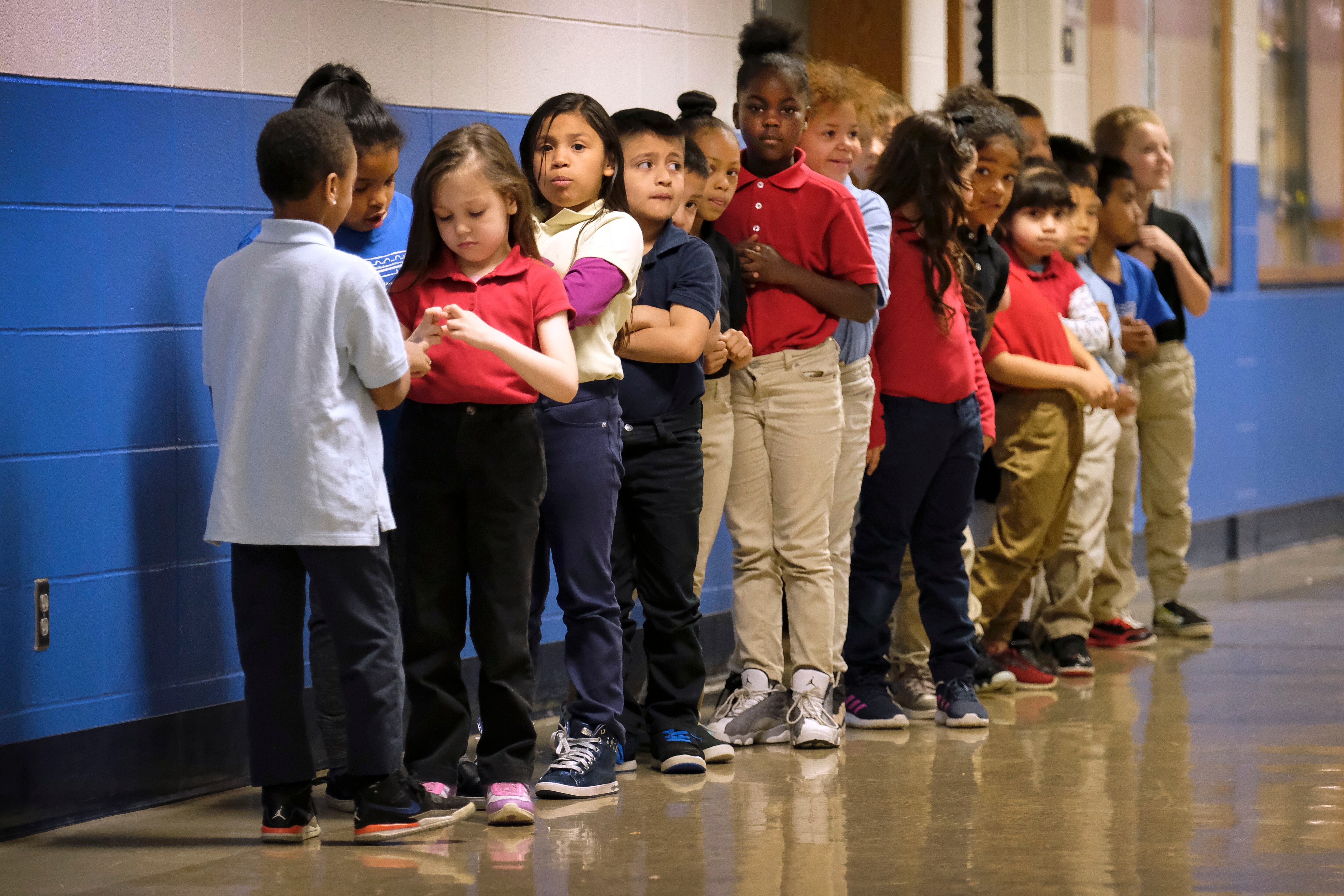On the day Michigan sent letters to thousands of families saying that their third graders might be held back because of low reading scores, Republican lawmakers split over the future of the state’s controversial “read or flunk” law.
Legislators from both parties generally agree on eliminating the state’s retention mandate for third graders. That means families who receive those letters are likely in for some whiplash if the state reverses course.
But while it appears likely that the legislature will pause retention this year, it remains unclear what the requirements will look like next year.
The GOP-led Senate will soon consider a bill that would extend the state’s retention requirements to struggling fourth graders next year. While the bill passed out of the Senate education committee along party lines, some Republicans opposed it.
A bill sponsored by GOP Sen. Jon Bumstead would pause retaining third graders for a year. But Republican leaders amended the bill to require that fourth graders also be held back next year if they are behind in reading.
In an unusual move, Bumstead spoke against his own legislation during a committee hearing, saying he would ask for his name to be removed from the bill. He said he was not consulted about the changes.
“Our students, teachers, administrators, and parents don’t need more mandates from Lansing,” he said. “They need our help and empathy for all they’ve gone through.”
Sen. Lana Theis, Republican chair of the Senate Committee on Education and Career Readiness, who supports the plan to hold fourth graders back next year, said pausing retentions this year “is not an outright rejection of the third grade reading law. It’s clear the fundamentals of the third grade reading law are working.”
She noted that she recently introduced a separate bill that would use $55 million in federal COVID-19 relief to provide scholarships of up to $1,000 so that families of struggling readers can pay for private tutoring or instructional services.
The mandated retention component of Michigan’s 2016 literacy reform law was set to begin last spring, but was postponed after schools closed and the state canceled standardized tests.
Even without retention, Michigan students have scored slightly higher in reading since the literacy law was put in place. Researchers found that literacy coaching for teachers, a key component of the reading law passed that year, contributed to improved student outcomes.
Sen. Dayna Polehanki, a Democrat, said that retaining students doesn’t help them learn to read. “Retaining kids can be emotionally harmful in a typical year, but in a pandemic, it’s my feeling that it’s just plain cruel,” she added.
Holding older students back is especially harmful, said Jennifer Smith, director of government relations for the Michigan Association of School Boards.
While it’s especially important to pause the third grade retention requirement this year due to the pandemic, she said, any change is coming very late. Parents are starting to receive retention notices.
“We would have liked to see this done earlier,” she said. “It seems a little late for those parents you can’t contact and can’t reach. “
Officials sent 2,966 letters to Michigan parents Wednesday saying their third graders had received a low score on the state English exam and might be held back, according to a spokesman for the Michigan Department of Education. While a few more families could get similar letters, the ones sent today represent the “vast majority” of the total, Martin Ackley said.
State Superintendent Michael Rice, who leads the department, said in a statement that he opposes the retention policy for third and fourth graders.
“Third grade retentions are bad public policy, and even more so if expanding to students in two grades,” he said. “Local school districts need to work carefully with families to focus on reading supports and minimize retentions and the resultant adverse impact to children.”
That’s a lower number than would have been expected in a non-pandemic year because fewer students than usual took the state exam. Michigan counted 100,684 third graders this year, but only about 70,000 have taken the English exam so far. The testing window closes June 4.






